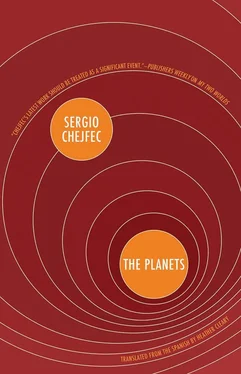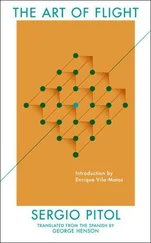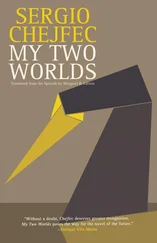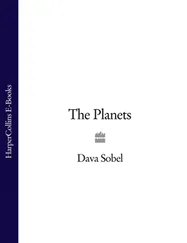Sergio Chejfec - The Planets
Здесь есть возможность читать онлайн «Sergio Chejfec - The Planets» весь текст электронной книги совершенно бесплатно (целиком полную версию без сокращений). В некоторых случаях можно слушать аудио, скачать через торрент в формате fb2 и присутствует краткое содержание. Год выпуска: 2012, Издательство: Open Letter Books, Жанр: Современная проза, на английском языке. Описание произведения, (предисловие) а так же отзывы посетителей доступны на портале библиотеки ЛибКат.
- Название:The Planets
- Автор:
- Издательство:Open Letter Books
- Жанр:
- Год:2012
- ISBN:нет данных
- Рейтинг книги:4 / 5. Голосов: 1
-
Избранное:Добавить в избранное
- Отзывы:
-
Ваша оценка:
- 80
- 1
- 2
- 3
- 4
- 5
The Planets: краткое содержание, описание и аннотация
Предлагаем к чтению аннотацию, описание, краткое содержание или предисловие (зависит от того, что написал сам автор книги «The Planets»). Если вы не нашли необходимую информацию о книге — напишите в комментариях, мы постараемся отыскать её.
The Planets — читать онлайн бесплатно полную книгу (весь текст) целиком
Ниже представлен текст книги, разбитый по страницам. Система сохранения места последней прочитанной страницы, позволяет с удобством читать онлайн бесплатно книгу «The Planets», без необходимости каждый раз заново искать на чём Вы остановились. Поставьте закладку, и сможете в любой момент перейти на страницу, на которой закончили чтение.
Интервал:
Закладка:
Sergio Chejfec
The Planets
For Graciela Montaldo
Of all invisible countries
the present is the most vast
ONE
Dream, nightmare, truth. To Grino, the series played itself out like a promise rather than a dream. Days earlier he had woken to a memory, at the time still unreal: Sela’s little legs, which suggested a future beauty and inspired a desire inappropriate for her age, ruined by her fall. But dreams were insatiable, they always demanded more; according to Grino it was not enough just to dream them, they also sought some other form, a complementary action to rescue them from the confusion of the night. It is not only the dream, then, that took on a new inflection; real incidents — in this case, Sela’s fall — were cast in a nocturnal light, revealing an enigmatic quality. It would be in keeping with the order of things for a ripe piece of fruit to fall to the ground under the force of its own weight, but the fact that the girl should tumble from the tree after he dreamt about her fall transposed the whole sequence of events, including the backdrop against which they took place, onto the realm of the fantastic: the causes outnumbered the effects. Grino often wondered about the power of his dreams: whether they simply reflected events or if, perhaps, they catalyzed them. A patio, a few flower pots, a fig tree, and typical tile flooring completed the scene; the bedrooms were off to the side, set back about three meters, and one meter further, half hidden by branches and cans containing the sprouts of future plants, a railing separated the patio itself from the area used for the clotheslines, the laundry room. Little by little, Grino had become accustomed to the details of this scene, in which the girl was only one element; he had decided to call her Sela as soon as he laid eyes on her on his first day of work. Sela could reach the top of the tree in just a few movements, but she climbed slowly, stretching her legs so wide that Grino was afraid that at any moment her delicate body might be torn apart. After a while, she would disappear into the dense foliage, only to reappear further up, perched on a swaying branch. She would sit there for hours, like a sentry. The scene reminded Grino of a photo of a girls’ swim team lined up along the edge of an indoor pool, their heads covered by their swim caps and their legs exposed, poised to kick off a government-sponsored competition with their first dive. He had seen these images in magazines as a young boy, had thought about them until they began to feel like part of him: pictures of a row of bodies against a murky, dark background in which one might imagine people, but where there might only have been bleachers, or perhaps nothing at all. Since the water, too, was invisible, the swimmers appeared to be performing some sort of ritual, their joined hands pointing downwards as though invoking a submerged deity. The caption of the photo read “The girls are grateful for their healthy development.” Watching Sela climb the tree, Grino would think: She climbs like a swimmer. Her legs reminded him of the bodies of the girls in the picture, but were endowed with all the darkness, danger, and urgency that the others, due to his youth and the nature of photography, had lacked.
Something happens and the scene is transformed. The explosion is right on time. One can imagine the din of shattered stones, broken branches, the shifting of the earth that ends only when, paradoxically, it becomes clear that nothing is as it had been. Changes in nature often seem impermanent; they might be violent, even cataclysmic, but their effects spill out quickly as they fold themselves into the landscape and soon all is quiet again, which means it is time to begin anew. Nonetheless, years ago, when the news reported an explosion out in the countryside, beyond the city limits, I sensed that some aspect of those changes — not a before or an after, but a who, a how, and a how much — would prove to be more intractable, though less perceptible, than the changes in the landscape.
It was an impassive plain, interchangeable: there is infinite countryside just like it. Only in the minds of its inhabitants and in the memory of the animals and that great expanse of dirt, stones, plants, water, and little else did the blast hover like a noise waiting to trail off. Few things seem more gratuitous than setting off an explosion in the middle of nowhere, but in this case the macabre disguised itself as meaningless or innocent, a banality, supplanting the true face of terror. (This turned the danger into something irrational, not because it was too much to comprehend, but because it made itself known by unfolding according to an unfamiliar order.) The article talked about remains scattered over a vast area. There is a word that describes it well: sprayed. Appendages sprayed, spread out in concentric circles from an unequivocal center, the site of the explosion. No matter which direction one went, one would run into remains for hundreds of meters, remnants that had become no more than mute symbols fit only for an epilogue: bodies broken after having suffered, been torn to pieces and dispersed.
I looked up from the newspaper and toward the street. A taxi slowed, affectedly, neither coming to a stop nor advancing. I tried to formulate a thought: This is how we go through time, I said to myself, just barely moving forward. Aside from the lessons that could be culled from it, the taxi’s sluggish pace was meant, primarily, to give its passenger a moment. The man was eventually ready to pay, and the driver turned completely around to accept his fare in a gesture that seemed, if not overly obliging, at the very least contrived. Certain insights could be drawn from this, too, I thought. What I mean is that life proliferated itself through these events, while the text of the newspaper was something static, something that speaks of a seemingly inevitable past, a realm in which hope is extinguished, et cetera. While life and time marched forward in unison, branching out into infinite possibilities and consequences, the news stories that effaced the past and left us without hope were like a cynical grimace announcing what was to come, for example, that what once was light was about to fall into darkness.
Like many others, probably, I believed that I knew things the newspaper did not mention. In my case, the explosion had a painful history, which began with the abduction of M (M for Miguel, or Mauricio; it could also be M for Daniel since, as we know, any name at all can reside behind letters). Several days passed between the abduction and its announcement, a length of time I do not dare try to calculate, partly because I am not sure that I could: those days were not days at all — they were a single, interminable mass of time, at once ephemeral and able to reproduce itself without end; in a cruel twist of fate, as they sometimes say, the pages of that newspaper offered the only possibility of an ending, if not in the form of a conclusion then at least as a cessation, a way of giving shape to that mass and thereby opening it up to an after.
I should say that I lacked then, as I do now, any proof that M was in that explosion. But I was not, I am not, in a position to ignore the possibility. Imagining him among the dead served little purpose; in fact, it served no purpose at all. Nevertheless, it was a thought that insinuated itself time and again through association: what once pulsed with life, its own form of abundance, that is, his body, a combination of liquids, nerves or whatever all of that could be called (a typical presence to which the world has grown accustomed and is widely taken for granted, the habit of leaving life unspoken); the thought of something that had been inexhaustibly alive until that moment, the organic life of a body now emptied of its substance, took the shape of an idea marked by necessity, perhaps even by fate.
Читать дальшеИнтервал:
Закладка:
Похожие книги на «The Planets»
Представляем Вашему вниманию похожие книги на «The Planets» списком для выбора. Мы отобрали схожую по названию и смыслу литературу в надежде предоставить читателям больше вариантов отыскать новые, интересные, ещё непрочитанные произведения.
Обсуждение, отзывы о книге «The Planets» и просто собственные мнения читателей. Оставьте ваши комментарии, напишите, что Вы думаете о произведении, его смысле или главных героях. Укажите что конкретно понравилось, а что нет, и почему Вы так считаете.












